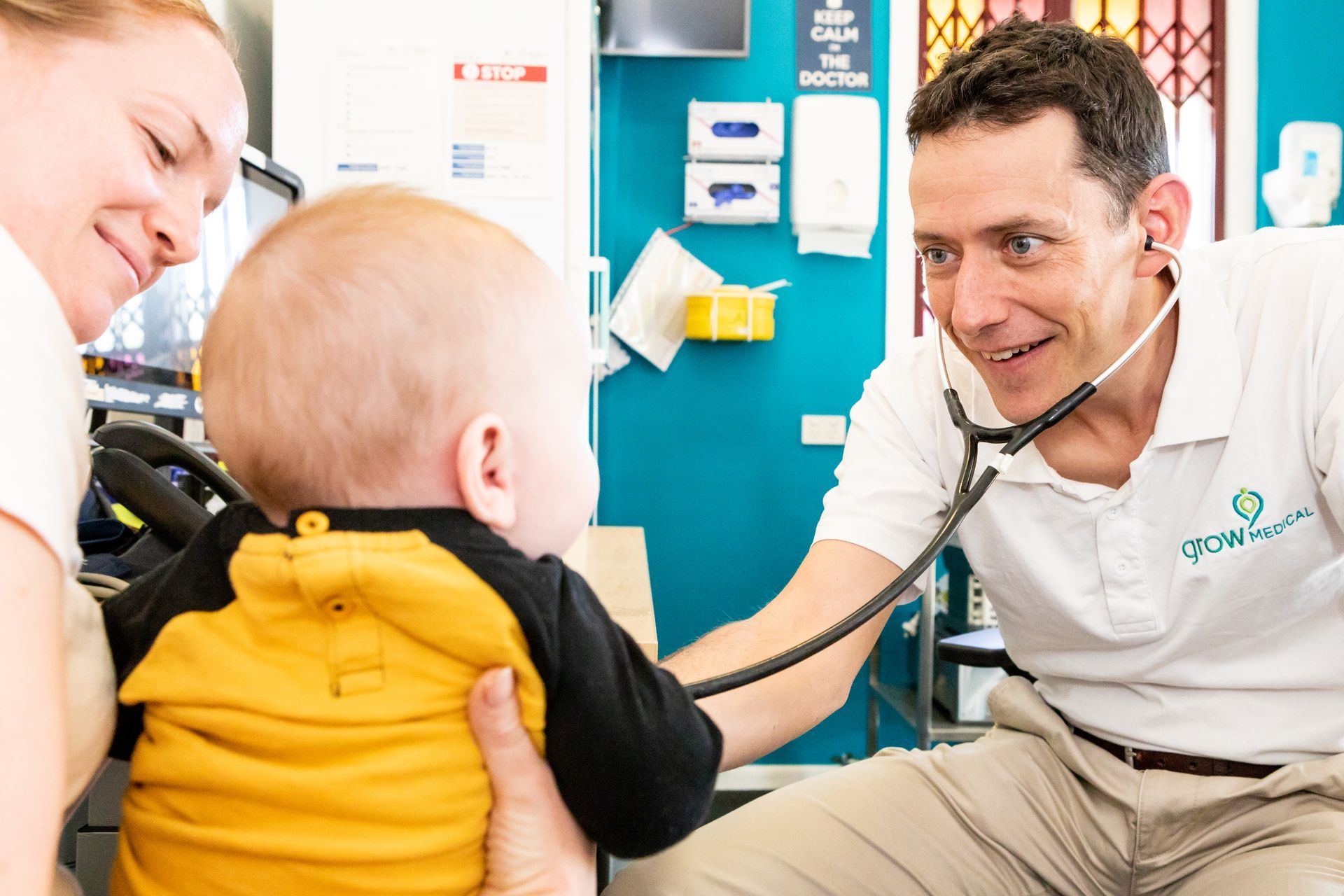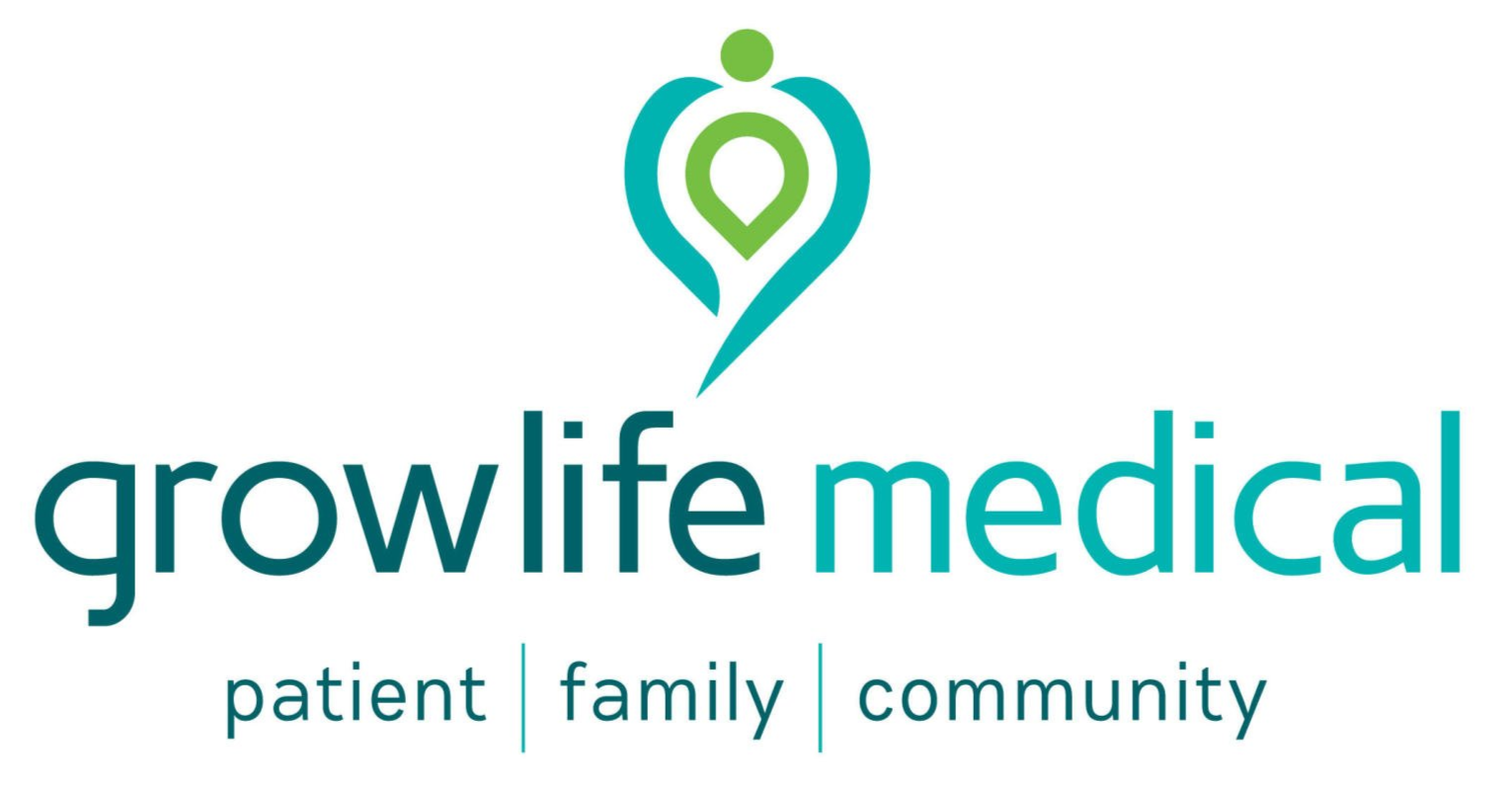What to Expect at Your Baby's Health Check With the GP
A Guide for New Parents in Queensland

As new parents, your baby's health is your top priority. The early years are a critical period for growth and development, and regular health checks with a GP can help ensure your baby’s journey is a healthy one. In Queensland, the Personal Health Record (often called the "Red Book") is your guide to your baby’s milestones, providing recommendations for key checkups from birth through early childhood. Here’s what you can expect from these health checks, helping you feel confident and prepared.
What is the Red Book?
The Red Book is issued to every baby born in Queensland. It’s a valuable tool that records essential health information, growth patterns, and developmental milestones. It also acts as a checklist for routine health checks, ensuring parents know when to visit the GP and what aspects of health will be assessed. These health checks are designed to identify any potential concerns early and to provide ongoing support for your child’s growth and development. Each check has questions for you to complete prior to your appointment to prompt reflection and discussion with your GP.
The Importance of Regular Health Checks
Regular health checks allow your GP to monitor key aspects of your baby’s growth, such as physical development, motor skills, hearing, vision, and social interactions. These appointments are also a great opportunity to discuss any concerns you might have about feeding, sleeping, or your baby’s general wellbeing.
Key Health Check Milestones
According to the Red Book, here are some of the major health check milestones you can expect when you see your GP at Growlife Medical:
- Newborn Check (Within First 7 Days): In the first week after birth, your baby should undergo a thorough health assessment in clinic, including checks for weight and measurements, confirming that the newborn hearing screen and heel prick blood test have been completed, a top to tail examination including eyes, mouth, heart sounds, abdomen and umbilical health, hip stability, pulses, genitalia, reflexes, skin, and general appearance. Your GP can help you link in with our lactation consultant if there are any breastfeeding concerns.
- One to Four Weeks: In the first weeks after birth, your GP will assess feeding patterns, weight gain, and overall growth. It’s a time to discuss any feeding issues, whether breastfeeding, bottle-feeding, or both, and to review sleep habits and general care. This period can also be exhausting, so plan to discuss your wellbeing and how you’re feeling about being a parent too. Join our free parents' groups around this time.
- Six to Eight Weeks: This is a major developmental check-up with your GP. Typically, your baby will be emerging from the newborn phase and starting to smile! Each routine checkup from here until 18 months involves a development check and routine vaccinations. Your baby’s weight, length, and head circumference will be recorded to track growth patterns. Your GP will also conduct another thorough physical examination, including rechecking many of the same things from the Newborn Check, like eyes, heart sounds, hip stability, and your baby’s developmental milestones. To aid your baby’s sensory development, and to create a village for your family, this is the age to join our SongLife Connections Group Music Therapy for babies – especially if you have any feeding, sleeping or developmental concerns.
- Four Months: Around this time, your baby’s hearing, vision, and development are monitored, with a focus on their interaction with you and their environment. This check-up can help address any emerging issues early. It is also a good time to discuss introducing solids, which you’ll be able to do over the next few months. Introducing solids around 6 months and not prior to 4 months is considered the ideal time. Read our elimination communication blog and sign up to our introducing solids class soon after this check
- Six Months: Your baby is beginning to explore and interact more, so this check-up focuses on movement and coordination, social interaction, weight, length, and head circumference. It’s also a great time to discuss how the introduction of solid foods is going, as well as any changes in sleeping or feeding patterns.
- Twelve Months: This is a major developmental milestone, as many babies start to show more independence. Most babies start to walk and talk around this age, so it is an exciting time! Your GP will assess their growth, vision, hearing, and mobility, and discuss their progress with eating, and social interaction.
- Eighteen Months: During this period, health checks focus on physical activity, speech, and social skills. GPs also assess early markers of emotional and mental development, preparing your child for preschool milestones.
What to Bring to Your GP Appointments
It’s a good idea to bring your baby’s Red Book to each health check so that your GP can update it with the latest measurements and notes. Bringing a list of any questions or concerns you have about feeding, sleep, or development can also be helpful. This allows you to address all your worries during the visit. The checklist in your Red Book is a great place to write these down!
Immunisations at 2, 4 and 12 months include a vaccine for which it is recommended that your baby has a dose of paracetamol before. It is ideal in the 30 minutes before the vaccine, so giving this either just before leaving home, or bringing it with you and giving as soon as you arrive at the practice is a great idea.
Finding a GP Who Specialises in Child Health
Choosing a GP who is passionate about child health and has a long-term approach to your family’s care can make all the difference. Many parents find comfort in a GP who not only understands child development but also builds a trusting relationship over the years. Look for a GP who is familiar with the Red Book milestones and can guide you through your baby’s growth journey with confidence and expertise. At Growlife Medical we love caring for babies, and we’re passionate about growing the strength of families and building a cohesive community in the suburbs in which we work and live.
Supporting Your Baby’s Health Together
The early years are filled with rapid changes and precious milestones. With regular health checks, a dedicated GP, and the Red Book as a guide, you’re well-equipped to support your baby’s health and development. Whether it's their first smile, first step, or first word, each check-up will help ensure your baby is thriving every step of the way.
